Resources
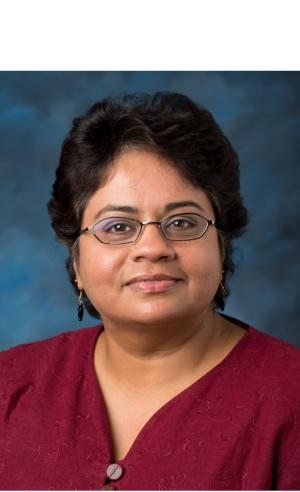
It sighed again the shark. Spitting out yet more fun gleeful humans thrilled at its unreal teeth.
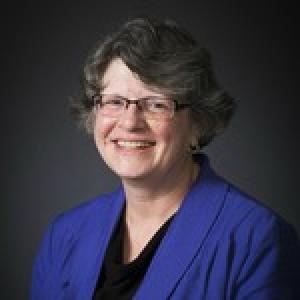
The cactus can be a metaphor for our institutions; institutions whose pasts may seem dead, yet there may still be new growth emerging. The cactus grows around its historical center. The flowers are new life, distinct from and arising out of the present – in all its steadfastness, stability, and prickliness. The dean is to be the light of perspective whose shadow highlights the institution’s place in time.
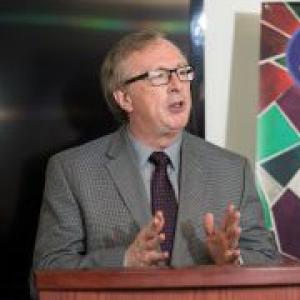
I was not happy to see the headlights of an approaching dune buggy – its presence would ruin the unspoiled beauty of the beach. Yet when the dune buggy (labeled the “Turtle Patrol”) got close, I realized that the very friendly driver was actually removing a lot of plastic and other litter from the beach, thus caring for and enhancing its natural beauty. I still do not like vehicles on the beach, but I need to be more discerning. In theological education, as a dean, I must learn to withhold prior judgment of what I perceive about the ‘dune buggies’ approaching in the distance.
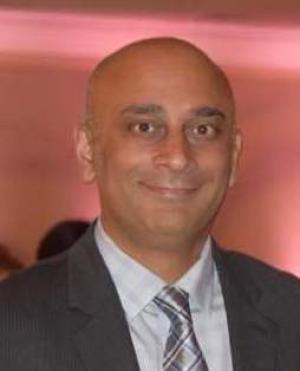
Walking along the long stretch of beach, the cross-section of the dunes revealed the stringy roots of the foliage penetrating and crisscrossing below the surface. This suggests that despite the shifting of the sands comprising the dunes, the roots help anchor the plants and enable them to continue thriving. Similarly, deans can draw upon their knowledge of the school’s history and roots to maintain a certain stability despite significant changes taking place around the institution.
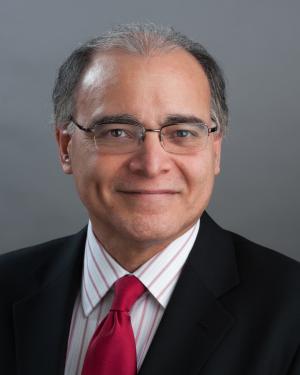
The 2017-18 Deans’ Colloquy was constituted by a diverse group of deans representing 11 schools in the USA and Canada. Drs. Deborah Krause (Eden Theological Seminary), Luis R. Rivera (Garrett-Evangelical Theological School), and Paul Myhre (Wabash Center for Teaching and Learning in Theology and Religion) were the facilitators. The group met in Mustang Island for the second half of the colloquy. One of the topics for reflection was: “the Dean’s leadership role in times of deep changes in theological education.” The Deans were given an assignment to spend 45 minutes walking around the beach to identify aspects of the physical environment that may evoke thoughts or visions on the topic. They returned and shared their findings in small groups and then in plenary. It was a rich conversation. The group decided to share some of their reflections in the Wabash Center’s blog series for Theological School Deans. Instead of presenting thoughts in one particular way, they decided to do it freely . . . like the wind . . . like the waves . . . . The next 10 posts in this blog series represent some of those reflections.
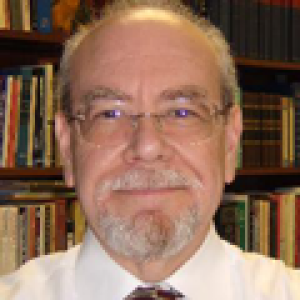
Persons new to the office of the Dean may soon discover the need to acquire a new set of skills to effectively carry out the job. Those skills range from supervision, pastoral care (yes, more than you imagined!), educational administrative planning, curriculum design and planning, political acumen, budgeting and financial management, and assessment. Of these, none seems to puzzle novice deans more than educational assessment. While it can seem daunting, as I sometimes tell deans asking for help in this practice, "It's not rocket science, but it helps if you know what you're doing." There are six types of assessment practices, which, used together, will provide the dean a multifaceted and holistic view of student learning outcomes. These will provide deans, and Faculty, the data needed to evaluate the effectiveness of the curricula and to make wise and appropriate adjustments. Good data, rigorously derived, make for better decision-making than hunches, good-sounding ideas, predilections, or fads. As well, these assessments will provide the information needed to demonstrate rigorous academic practices to accrediting bodies. The Six Types of Assessments DIAGNOSTIC Diagnostic assessment measures a student's, or a class of students', strengths, weaknesses, knowledge, and skills prior to an instructional set (a course), or prior to starting a program of study. Examples of diagnostic assessments used in theological schools include the TOEFL language proficiency exam given to international applicants, and the GRE. Some schools may administer writing assessments to evaluate the need for remedial work in preparation for academic writing in a degree program. Some DMin programs use the MAT as part of their admissions requirements. Some schools administered the MMPI personality inventory as part of their application process (which, upon taking, the seminary intake counselor suggested I should not go into ministry; advice I ignored and went on to have a successful ministry career. So there.). FORMATIVE Formative assessment practices give evidence of a student's performance during instruction, during a learning experience, or in the midst of a course of study. Formative assessments are applied regularly at intervals throughout the instruction process. An example is a multi-faceted "mid-course" assessment with a faculty adviser to review academic performance and progress through a degree program course of study. This can include a student's self-assessment about their progress in formation goals. For students, formative assessments is an opportunity to receive feedback on academic performance and other goals. SUMMATIVE Summative evaluations measure a student's achievement at the conclusion of an instructional set or course of study. The most obvious course level summative assessment are final exams and the final grade a student receives in a course. At the program level, summative assessments can include a grade distribution analysis, program retention and completion rates, graduating class profiles, and, a grade point analysis of graduating students (highest, lowest, median, average). NORM-REFERENCED This assessment practice compares a student's performance against a national or other "norm" group. Some denominations require candidacy and ordination exams that demonstrate competencies in areas such as biblical exegesis, theology, polity, and worship and sacraments. These denominations can provide comparative data to show your students' placement in norm-referenced evaluations and exams. Due to the loose and broad interpretation of accreditation standards, the wide variety of theological school cultures and contexts, and the range and amorphous nature of what constitutes effective ministry practice or pastoral competencies, norm-referenced assessments are a challenge in theological schools. CRITERION-REFERENCED This assessment practice measures a student's performance against a published goal, specific objectives, or standards. In theological schools the most common criteria are interpretations of accreditation standards in program goals and the derivative student learning outcomes embedded in courses and program components. The application of well-designed assessment rubrics aid in the assessment of criterion-referenced evaluations. BENCHMARK Benchmark evaluations are similar to some of the above. These practices are used to evaluate student performance at periodic intervals, or at the end of a grading period. They can be used to predict student performance on end-of-course summative tests, or, end-of-program competencies evaluations. Benchmark evaluations can also be used to predict student performance post-graduation. The use of alumni surveys evaluated with alignment with degree program goals can help in benchmark assessment. Again, the range ministry contexts in which alumni serve, and the amorphous nature of what constitutes ministry competencies, provide a challenge for theological schools to establish benchmarks. The increasing attention to competency-based programs will likely require schools to identify "benchmarks" as indicators of levels of competencies. How many of these six assessments do you apply in your evaluation practices in your school? Which might you need to implement to provide a richer and more balanced assessment profile for your school? How, for whom, and where will you publish the results of your assessments? For information? For accountability? For reporting?

Most theological school deans enter the office from an academic field of study---religious, theological, or ministry--distant from the field in which they now hold responsibilities: academic administration. Scholarly research soon takes a back seat to less esoteric and more pragmatic research. Spreadsheets, reports, budgets, and schedules become the daily tools to consult. It's time to trade in your Logos Bible software for a robust project management software, a tolerable student management system, and a handful of administrative apps to bring order out of the chaos that is your new normal. Theological school deans will need to broaden their horizons beyond the scope and focus of their academic guild. They need to become knowledgeable and stay current, on a wide religious landscape in order to ensure the school's academic programs remain relevant and address the real current challenges of their constituents---congregations, denominations, and students. The training of future religious leaders requires not merely understanding current realities but anticipating future trends and challenges. [caption id="attachment_211996" align="alignleft" width="300"] Computer Key orange - Research[/caption] Here are links to research sites that can help the dean keep her or his finger on the pulse of the religious landscape. How well do your curricular courses of study reflect or address what you find at this sites? The Association of Religion Data Archives A data nerd's and religion researcher's dream. Contains international and national data and statistics on religion, religious groups, and denominations, including data on U.S. congregational membership. Includes informative educational American religion timelines, and an interactive Community GSI maps and profile reports section. You can build your own congregational or student profile interactive pin map as well as viewing selected maps and areas of interest. America's Changing Religious Identity from the Public Religion Research Institute PRRI’s research explores America’s changing cultural, religious, and political landscape. PRRI’s mission is to help journalists, scholars, thought leaders, clergy, and the general public better understand debates on public policy issues, and the important cultural and religious dynamics shaping American society and politics. Cool Congregations From Interfaith Power & Light, the Cool Congregations program is designed to support faith communities as they “walk the talk” by reducing their own carbon footprint, thus helping to cool the planet. A side benefit of the program is the ‘multiplier effect,’ as congregants are encouraged to model the same energy saving behavior at home that they see at their congregation. Collegeville institute on Vocation and Collegeville Institute: Exploring Vocation in Community The Seminar on Vocation across the Lifespan brings together theologians, social scientists, and ministers to develop a more comprehensive theology of vocation from infancy through old age. The goal of the Seminar is to create resources for congregations and seminaries on the evolving nature of Christian faith and identity throughout the stages of the lifespan. Exploring Vocation in Community was developed in 2011 to serve the broader life of the church and ground the theological work of the Seminars in the lived experiences of Christians in congregations. 50 Ways to Get a Job What are your graduates going to do with that theological degree they just received? Truth is, in five years 50% of them will probably not be in ministry--and a goodly number will experience forced termination along their professional ministerial lifespan. 50 Ways to Get a Job is an interactive site addressing the span of vocational arc. Studying Congregations If you haven't come from the field of practical theology you may not be familiar with the long-standing work of the Studying Congregations projects. The site contains great tools and resources for seminarians to study congregations. Many of the frameworks and guides for studying congregations can be applicable for studying your own theological school---its context and mission. Religious Worlds of New YorkReligious Worlds of New York News from my home town. No city or region of the country is as religiously diverse as New York. The site offers many educational resources on religions and interfaith dialog. Given the new data from the America's Changing Religious Identity (see link above), this may be a portend of things to come. How well is your theological school preparing ministers for a more diverse world? Sunday Assembly The Sunday Assembly claims to be the world’s fastest growing secular community. The Sunday Assembly was started by Sanderson Jones and Pippa Evans, two comedians who were on the way to a gig in Bath when they discovered they both wanted to do something that was like church but totally secular and inclusive of all—no matter what they believed. The first ever Sunday Assembly meeting took place on January 6th, 2013 at The Nave in Islington. Almost 200 people turned up at the first meeting, 300 at the second and soon people all over the world asked to start one. How's that for "church growth"? Association of Theological Schools in the United States and Canada Keeping up with the latest developments in theological education is critical to the dean. The Association of Theological Schools (ATS) is the accrediting agency for 270 graduate schools that offer post-baccalaureate professional and academic degree programs to educate persons for the practice of ministry and for teaching and research in the theological disciplines. The Commission on Accrediting of ATS accredits the schools and approves the degree programs they offer. If you're new to the deanship, ATS offers much more than you may imagine. Wabash Center for Teaching and Learning in Theology and Religion Bookmark this site! The Wabash Center supports teachers of religion and theology in higher education through meetings and workshops, grants, consultants, a journal and other resources to make accessible the scholarship of teaching and learning. All Wabash Center programs are funded by Lilly Endowment Inc. If you're new to the deanship, be sure to sign up for their Colloquy for Theological School Deans! What other helpful research sites for deans have you discovered? Share your stuff.

One of the most critical skills theological school deans need, arguably now more than ever before, is that of problem-solving. The challenges facing theological schools continue to become more technologically complex, socially entangled, costly, and multi-faceted. It is evident that most deans are not just dealing with programmatic, administrative, and technological problems, they are dealing with wicked problems. The experience can feel like trying to unravel an endless tangled cord. Horst Rittel, one of the first to research wicked problems, references ten characteristics that describe this sort of complicated challenge: Wicked problems have no definitive formulation. Therefore, it becomes difficult for a dean to define the problem that needs to be addressed. This is a significant challenge given the tendency for people to want to know the one answer and simplest solution to a complex problem. With complex problems, it's never about just one thing. Wicked problems have no stopping rule or criteria upon which to determine "solving." Unlike challenges with clearly defined outcomes and measures of completion, wicked problems are persistent and tend to be moving targets. The answer to "When will we ever solve this problem?" is "Never." Solutions to wicked problems are not true or false; they can only be good or bad. When deans tackle wicked problems the best approach is to choose the best strategy at the time. Arguing about what "should" or "should not" be is pointless. There is no complete list of applicable "moves" for a solution to a wicked problem. Wicked problems require deans to be imaginative, fleet, flexible, and innovative. There is always more than one explanation for a wicked problem, with the appropriateness of the explanation depending on the individual perspective of the perceiver. Hence, deans will constantly deal with the impasse of multiple interpretations. The President will see it one way, the Faculty another, Trustees in their own way, donors and students differently altogether. Where one sits in the system determines one's perspective. It should come as no surprise, then, that no one will see the problem in the same way the dean does. This requires a multi-disciplinary approach to most wicked problems, as no singular perspective suffices. Every wicked problem is a symptom of another problem. Like a knotted bunch of cords, pulling on one end of the problem merely creates tension and tightens the knot on the other end. Deans need to be systems thinkers, understanding the interconnected complexity of the enterprise. No solution of a wicked problem has a definitive, scientific test. When proposing strategies for addressing complex problems deans often face the call to give evidence or proof that the action will be successful. That's just not possible with wicked problems. They require the courage to risk and the ability to adapt along the way. Every wicked problem is unique. The problems facing theological schools are endemic to all schools merely by virtue that they are systems of a type. But it remains true that each dean will have to solve their own problems in their own context. Finally, to paraphrase Rittel, deans attempting to solve a wicked problem must be fully responsible for their actions. That's the burden of leadership. Few, if any, in the organization will take responsibility for tackling wicked problems. That comes with the job of being the dean. While not all problems a dean faces are wicked, those that are will be the most demanding. Even difficult problems can have a solution, and most deans can get adept at tackling them. But wicked problems will be the most challenging to educational leaders due to the indeterminate scope and scale required to address them. Wicked problems can't be fixed; they'll be the bane of every successive dean and President in office. Questions: What are the wicked problems you face in your school? Who are you consulting with on addressing the wicked problems? Are you aware of your biases which may hinder you from seeing alternative and imaginative approaches? Are you alert to unintended consequences as you apply strategies to wicked problems? In what ways are you defining and interpreting the wicked problems to the various audiences in your school?

Theological school deans are not just theological leaders for their institution, they must be EDUCATIONAL leaders. That is, they must implement sound educational practices related to curriculum, instruction, supervision, assessment, and administration. There is a variety of ways to assess...

Theological school deans are not just theological leaders for their institution, they must be EDUCATIONAL leaders. That is, they must implement sound educational practices related to curriculum, instruction, supervision, assessment, and administration. There is a variety of ways to assess...